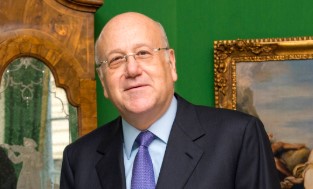Escalation in the Middle East: Netanyahu Faces Ceasefire Dilemma Amidst Intense Violence
Lebanese Prime Minister Najib Mikati remains hopeful for a ceasefire between Israel and Hezbollah, despite intense military actions and opposition from hardliners within the Israeli government. Israeli Prime Minister Benjamin Netanyahu has yet to respond to ceasefire proposals, urging the army to continue operations against Hezbollah.

Lebanese Prime Minister Najib Mikati remains hopeful that a ceasefire can soon end the ongoing clashes between Israel and Hezbollah, despite fierce opposition from hardline factions within the Israeli government. Netanyahu has instructed the Israeli army to press on with their offensive, stalling any immediate truce.
Calls for a 21-day ceasefire have come from the United States, France, and various allies, aiming to halt the violence along the Israel-Lebanon border. Amid escalating tensions and continued airstrikes, the Israeli military has targeted Hezbollah strongholds, leading to significant casualties and widespread displacement in Lebanon.
As the United Nations deliberates on peace measures, Netanyahu's administration faces internal pressures and a complex diplomatic landscape. The potential ceasefire, seen as crucial for stability, hinges on the willingness of both parties to enforce and adhere to international resolutions.
(With inputs from agencies.)
- READ MORE ON:
- Netanyahu
- ceasefire
- Hezbollah
- Israel
- Lebanon
- conflict
- airstrikes
- diplomacy
- UN proposal
- Mikati
ALSO READ
Israeli strikes hit two Syria border crossings with Lebanon, Lebanese minister says
Middle East latest: Israel airstrike cuts primary border crossing point between Lebanon, Syria
West Asia latest: Lebanon closes all land border crossings with Syria
Syria Restores Telecom Services Amid Conflict
Fragile Ceasefire in Peril: Israeli Strikes Hit Southern Lebanon










